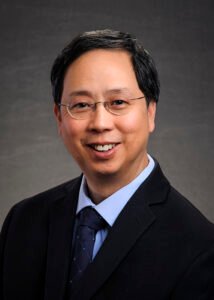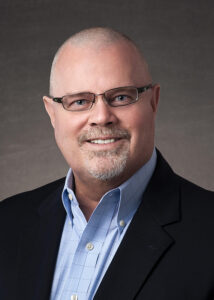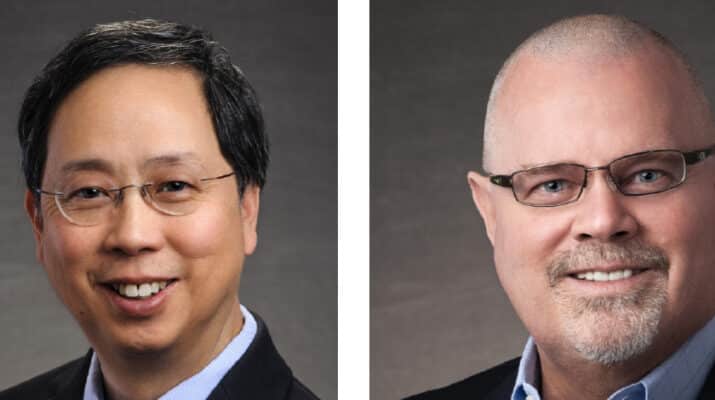By Norah Machia

Two highly skilled neurosurgeons, who are considered leaders in the field of complex spinal and neurosurgery, have joined the medical staff at Crouse Hospital.
While they are new to the hospital, they are familiar faces in Syracuse.
David Eng and Craig Montgomery have been practicing together since 1998, most recently at St. Joseph’s Health. Both completed their neurological surgery residencies at SUNY Upstate Medical University.
The board-certified physicians joined a team of five other neurosurgeons at Crouse Medical Practice — Neurology, located at 739 Irving Ave., suite 600, where they will continue to see their established patients, along with welcoming new ones.
The neurosurgery practice provides comprehensive patient-focused care for a range of diseases and disorders of the brain, spine and nervous system. Crouse Health offers the latest treatment options and technological advances, including the region’s most sophisticated minimally invasive microsurgical tools available.
While the two physicians have shared their patient care expertise with each other for years, joining the neurosurgery practice at Crouse will allow them to expand that working relationship with other highly skilled neurosurgeons.
“We’re really looking forward to working together with them,” said Montgomery.
One of the most common medical issues that both physicians treat is chronic neck and back pain. But while they specialize in surgery, they don’t recommend it for everyone. In fact, both physicians work with patients on less invasive ways to treat their conditions, reserving surgery as the last option.
“We see a lot of patients we don’t operate on,” said Montgomery.
Both doctors often work with other healthcare practitioners, including primary care doctors, pain management specialists, physical therapists and chiropractors, to help their patients resolve back and neck pain issues.

Treating the patient “as a whole” is their philosophy, so it’s important to address lifestyle changes as well, both physicians said.
For example, a new ergonomic chair at a desk, enrolling in a low-impact exercise program, or taking Pilates or yoga classes to build core strength are all changes that could be beneficial to a patient’s health and well-being. In fact, core strength supports back health, and “that’s good for everyone as we age,” said Montgomery.
Twenty years ago, a neurosurgeon would primarily focus on surgery for patient treatment.
“Now we’re really focused on other aspects of a patient’s health, including tracking bone density and helping with weight management,” said Montgomery. “We address the patient as a whole, taking a look at everything needed for that person to stay healthy.”
“Our first goal is to treat patients nonsurgically and help them heal on their own,” said Eng, noting a lot of patients will get better without surgery by following other treatment plans. By working with multiple medical professionals, “we are able to develop a plan that is best for them, and will really help improve their lives,” he added.
Their main priority has always been to “listen to the patient” and understand their concerns,” Montgomery said. “We get to know them first, and then we come up with a treatment plan” which may or may not include surgery, he added.
One of the most rewarding parts of the job is “helping bring patients back to a normal life” by treating their pain, said Eng.
“Chronic pain can be debilitating to both the patient and the family,” he added. “It’s not easy to deal with pain every day. A person may look okay, but that person may have a difficult time just getting out of the house.”
If surgery is required, such as a disc replacement, the latest technology available makes the procedure much less invasive, offering faster treatment, minimized complication rates and improved outcomes.
“These newer, less invasive ways to do surgery allow the patient to recover faster,” said Eng.
While both physicians had the opportunity to practice anywhere in the country (there is a shortage of neurosurgeons nationwide), they came to Crouse “because we wanted to stay in Syracuse and continue to take care of our patients,” said Eng. “We wanted to do that at Crouse with the other experienced neurosurgeons who have the same commitment to patient care.”
“We’ve always wanted to remain partners, and this way we can keep seeing the same patients while working with the neurosurgeons already on staff at Crouse,” said Montgomery. “The hospital administration and the other neurosurgeons have been very supportive of us.”
Crouse Health has approximately 3,200 employees and is the only locally governed hospital in Syracuse. In 2022, the total number of patients served by Crouse Health (both inpatient and outpatient) was 625,743.
The healthcare system is one of the region’s leading employers and has built a strong reputation for a number of specialty services offered to patients in a large geographic region surrounding Central New York.
Drs. Eng and Montgomery are joining Crouse Medical Practice (CMP), a multi-specialty practice that employs over 150 physicians and advanced practice providers, says CMP Executive Director Chris Williamson. These providers support and perform all their surgeries at Crouse Hospital. “CMP continues to grow and diversify our specialty areas by adding these exceptional neurosurgeons, which is just one of many initiatives for further expansion and enhanced patient care that CMP provides to the Central New York community.”
For more information about the neurosurgery services offered at Crouse, check www.crousemed.com/specialties/neurosurgery.

